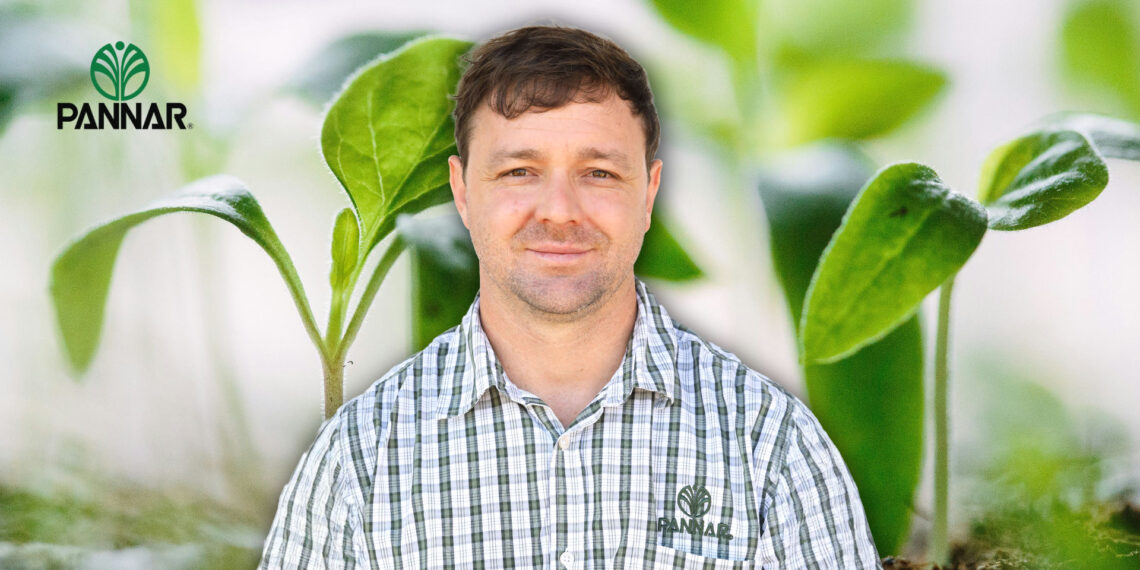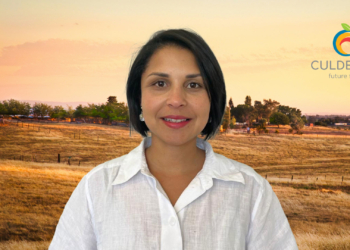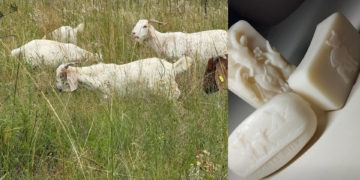Precision agriculture is key to modern farming. Pannar Seed’s Panagri™ research programme utilises tools such as yield maps and satellite imagery to analyse crops, inputs, soil, and weather. This helps farmers make smarter, data-driven decisions for better returns.
Farming is not just about seeds and soil; it’s also about making smart decisions backed by science. One invaluable resource is Pannar Seed’s Panagri™ programme, which combines rigorous research, multi-regional trials, and precision agriculture to provide tailored management recommendations that help farmers optimise yields and maximise profits.
To delve deeper into this topic, we spoke with De Bruyn Myburgh, agronomy manager at Pannar Seed and a key driver of the Panagri™ programme.
With an honours degree in soil science and over 11 years’ experience in the field, he works directly with farmers using precision agriculture, turning data into customised, practical recommendations that boost farm performance.
What is the Panagri™ programme?
Myburgh says the Panagri™ concept was inspired in 2010 after a team of Pannar scientists visited several seed businesses in the US. One key takeaway was that top-performing products alone aren’t enough – farmers also need support in managing their farms to unlock full profitability.
That’s where Panagri™ comes in: it’s built on long-term, multi-regional agronomic trials that guide accurate product placement and farm management decisions.
“Panagri™ is all about helping farmers make informed decisions. We investigate crop yields, input rates, soil characteristics, and weather patterns using precision agriculture tools. Then, we apply economic theory to interpret the data, giving farmers practical, profitable recommendations tailored to their unique conditions,” he explains.
They work closely with farmers, agronomists, and partners like Omnia Nutriology to ensure their trials reflect real-world conditions. This partnership approach strengthens the relevance and accuracy of their recommendations.
Related stories
- Mastering seed germination: The key to a strong maize harvest
- Maize hybrid selection: What every farmer should know
- Seed analyst: The unsung hero of your food supply
- Seed libraries, food gardens empower Cape communities
How testing is done
The Panagri™ programme includes four main types of trials, each crucial for testing products and management practices in real farm conditions:
- P3 trials (Pannar Preferred Products): These strip trials compare new pipeline hybrids and cultivars with existing commercial and competitor products, serving as the final “acid test” before a product’s wide launch.
- Product placement trials: Focus on a single product, assessing its response to different crop management techniques. For instance, the Western Water Table Trials explore hybrid performance on specific soil types with varying fertiliser and population levels.
- Side-by-side trials: Conducted on farmers’ own fields, these trials plant a new Pannar hybrid or cultivar alongside the farmer’s current preferred choice, giving them firsthand experience with the new product.
- Multi-product strip trials: Usually organised by farmer groups, these trials grow various seed brands side by side under uniform conditions to provide unbiased comparisons.
“We use tools like yield maps, satellite imagery, and weather tracking to collect detailed data. This helps us understand how different hybrids respond to specific conditions and management practices, and ultimately helps farmers make smarter decisions,” Myburgh says.
Get in touch with Pannar
Farmers interested in the Panagri™ programme can easily connect with the agronomy team by visiting the Pannar website, consulting the annual Pannar Product Catalogue, or using the Pannar Sprout mobile app.
The Pannar Sprout mobile app has recently been updated with new disease guides, an improved representative finder, enhanced calculators, SAFEX prices, and a currency converter – tools designed to help farmers make informed decisions and boost productivity.
It also offers an offline access feature, which is crucial for farmers working in areas with limited connectivity, allowing them to store information on their devices and access it without internet. When a connection becomes available, the app automatically updates to ensure farmers have the latest information.
“The Pannar Sprout App is a digital tool designed to assist farmers by providing essential information and resources directly on their mobile devices. Its main purpose is to simplify farming operations and help farmers make informed decisions to improve their productivity and efficiency.
“Farmers can download the Pannar Sprout App for free from both Google Play and the Apple App Store. There is no cost associated with downloading or using the app, making it an accessible tool for all farmers,” Myburgh concludes.
READ NEXT: Sorghum’s comeback: Why it matters now

















